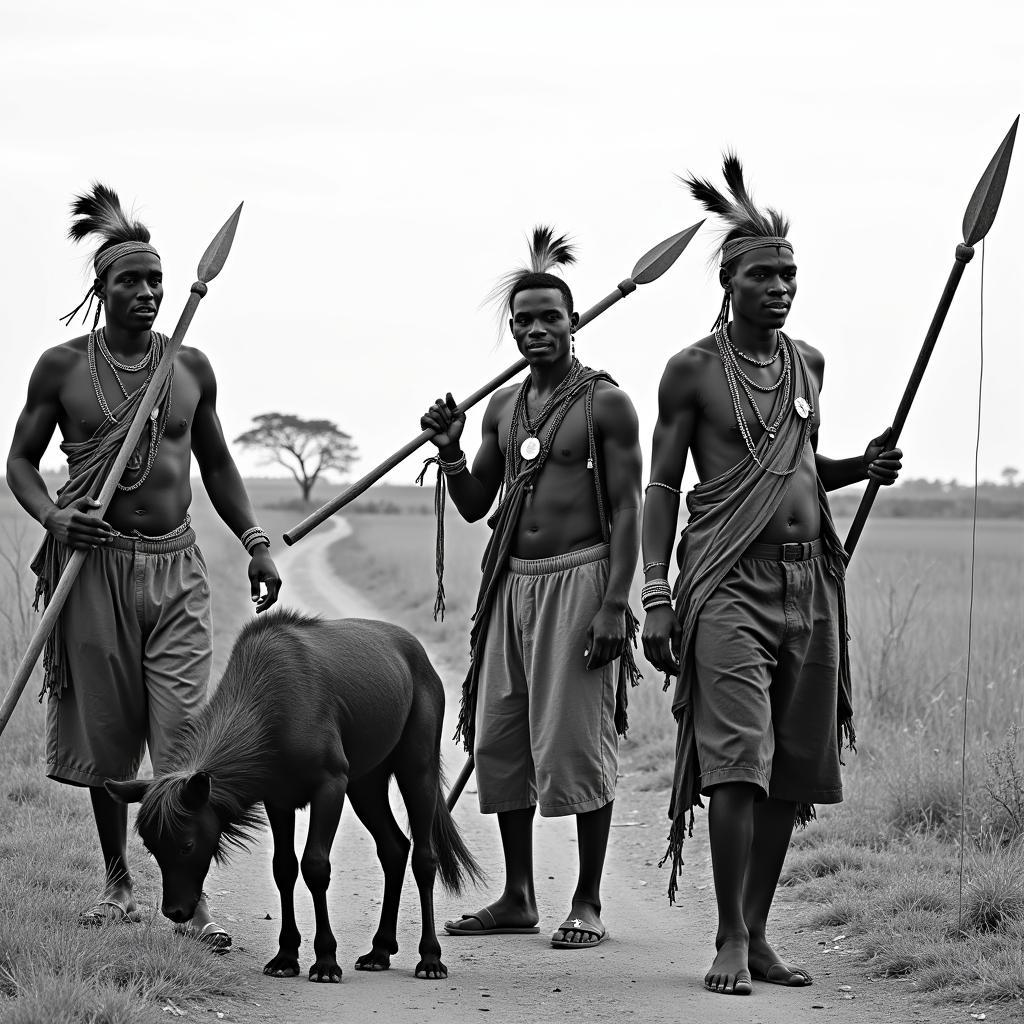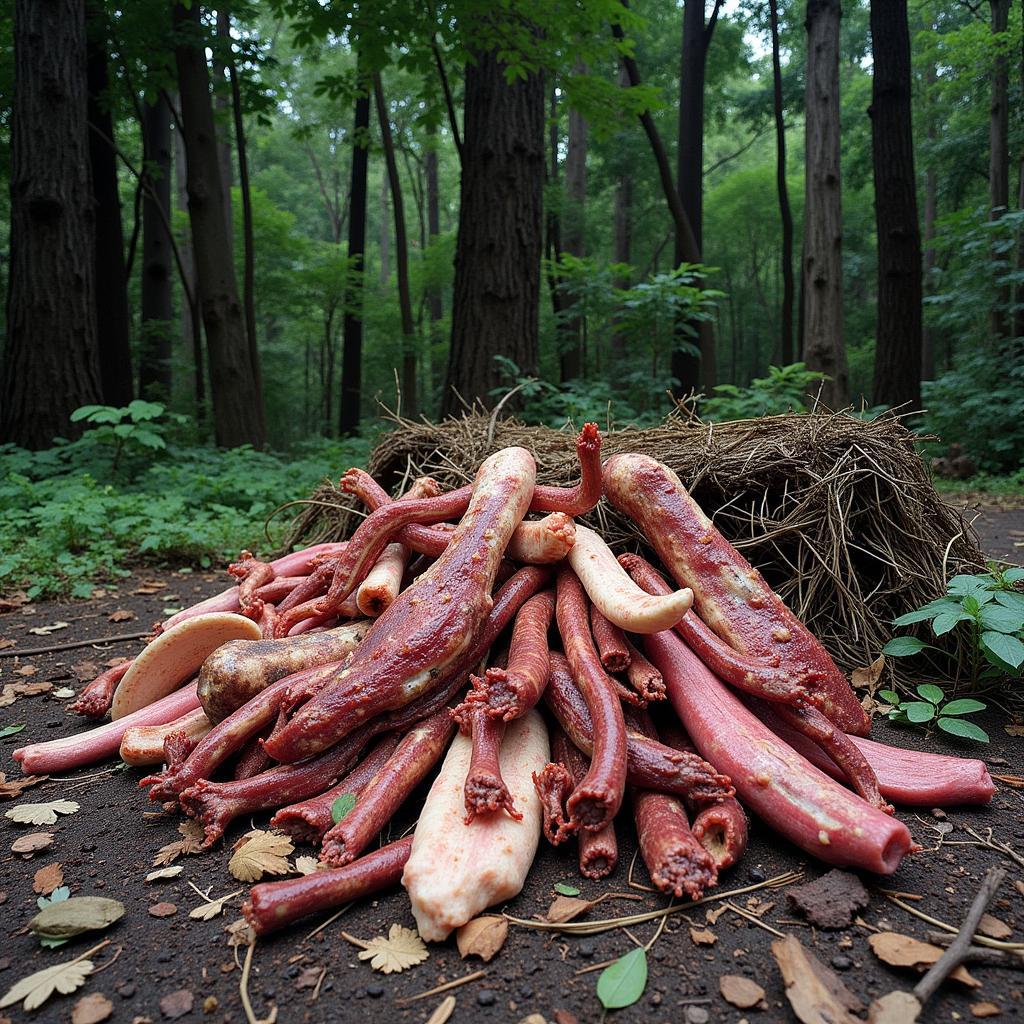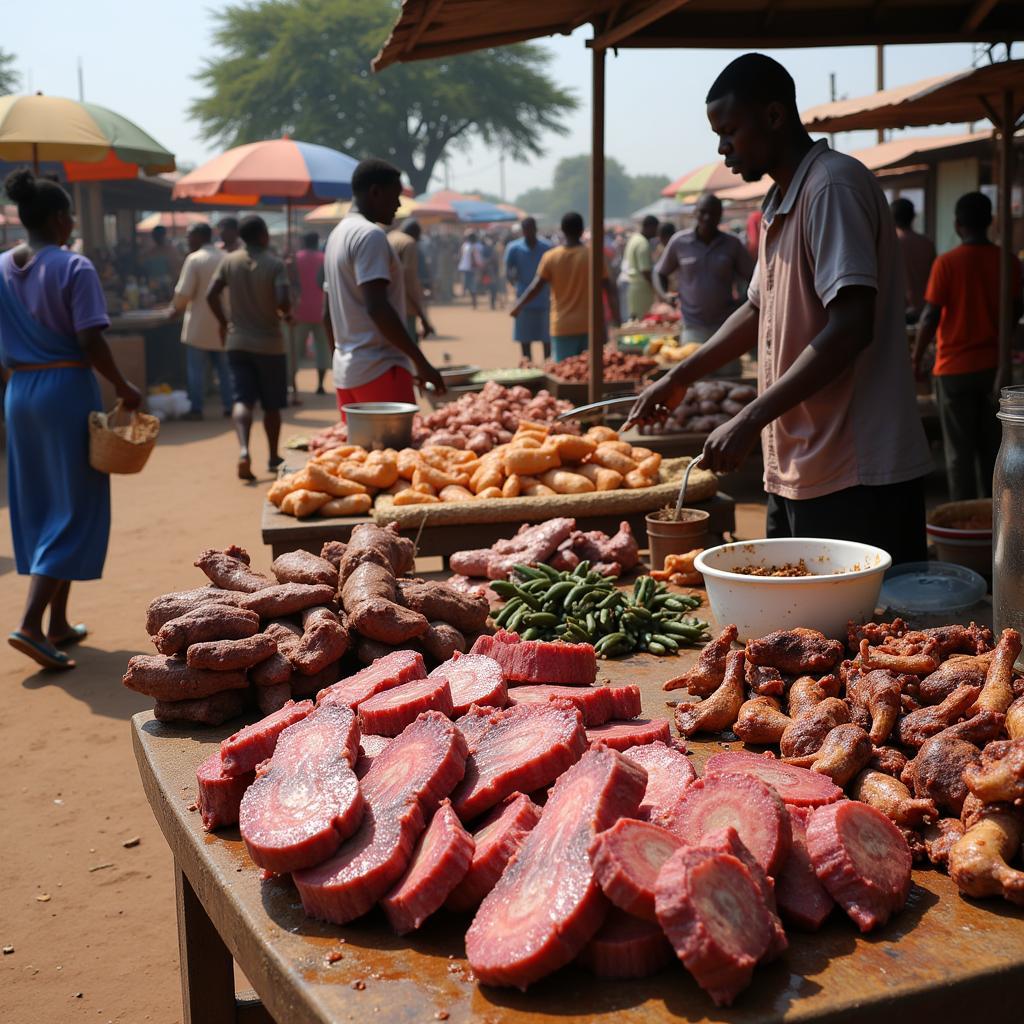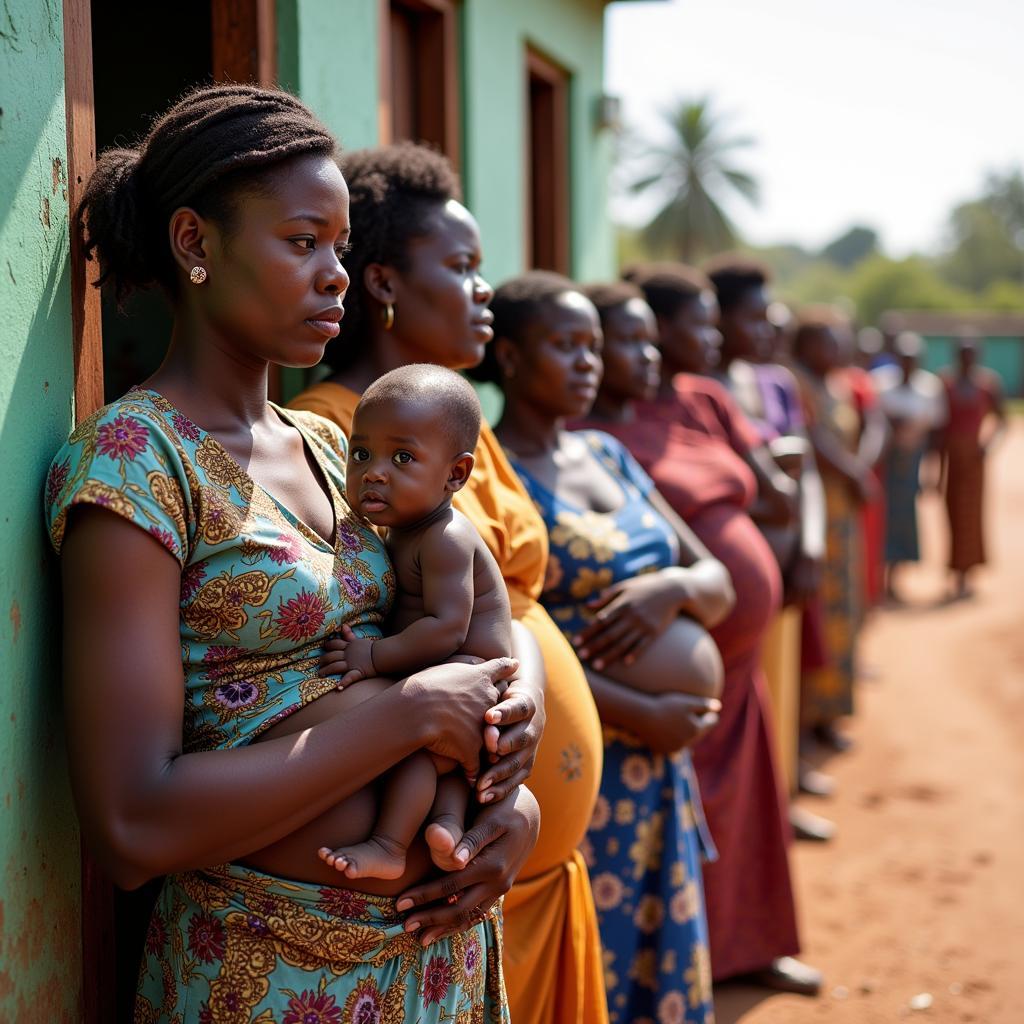Exploring the Complexities of African Bush Meat
The consumption of African Bush Meat, encompassing a wide range of wild animal species, is a deeply rooted practice in many parts of the continent. It’s a complex issue intertwined with cultural traditions, socioeconomic factors, and environmental concerns. While the term “bush meat” might evoke images of remote villages and subsistence hunting, the reality is far more nuanced.
A Look at the History and Cultural Significance
For centuries, communities across Africa have relied on bush meat as a source of protein and income. In many cultures, hunting and sharing bush meat are deeply ingrained traditions, signifying social status, masculinity, and connection to ancestral practices. Certain animals, like the African giant squirrel, hold cultural significance and are often featured in folklore and rituals.
 Bush Meat Hunting in Africa
Bush Meat Hunting in Africa
However, the landscape of bush meat hunting has transformed over time. What was once primarily a means of sustenance has, in many regions, evolved into a commercial enterprise driven by factors like poverty, lack of alternative livelihoods, and the growing demand for exotic meats in both urban and international markets.
The Ecological Impact: A Growing Concern
The surge in commercial bush meat hunting has raised alarm bells among conservationists due to its impact on wildlife populations. Unsustainable hunting practices threaten the delicate balance of ecosystems, pushing already vulnerable species, such as primates, towards the brink of extinction. The African black chimpanzee, for instance, faces a precarious future due in part to the bush meat trade.
 The Impact of Bush Meat Trade
The Impact of Bush Meat Trade
Furthermore, the bush meat trade can have indirect ecological consequences. The depletion of seed dispersers, like certain African monkey images, disrupts forest regeneration, while the loss of apex predators can lead to imbalances in prey populations, affecting vegetation and overall ecosystem health.
Health Risks and Zoonotic Diseases
Beyond the ecological implications, the bush meat trade poses significant risks to human health. The unsanitary conditions often associated with the handling, transportation, and sale of bush meat create a breeding ground for pathogens. This close contact between humans and wild animals increases the risk of zoonotic diseases – illnesses that can jump from animals to humans.
What is an example of a zoonotic disease linked to bush meat?
The Ebola virus, with its devastating outbreaks in parts of Africa, is a stark reminder of the potential consequences of the bush meat trade. While the origins of Ebola outbreaks are complex, scientists believe that the virus likely originated in bats, with transmission to humans potentially occurring through contact with infected bush meat.
 Bush Meat Market in Africa
Bush Meat Market in Africa
Addressing the Challenges: A Multifaceted Approach
Tackling the multifaceted challenges posed by the African bush meat trade demands a comprehensive and collaborative approach.
“Eradicating the bush meat trade completely is unrealistic, especially given its cultural significance and the role it plays in food security for some communities. Instead, we need to focus on sustainable alternatives and changing behaviors,” says Dr. Joseph Kamau, a wildlife veterinarian based in Kenya.
What are some potential solutions?
- Promoting Sustainable Livelihoods: Providing communities involved in the bush meat trade with alternative income-generating activities, such as sustainable agriculture, ecotourism, or small-scale farming, is crucial.
- Strengthening Law Enforcement: Enforcing existing laws and regulations against poaching and the illegal trade of bush meat is essential. This includes cracking down on trafficking networks and increasing penalties for offenders.
- Raising Awareness: Public awareness campaigns can educate communities about the ecological and health risks associated with the bush meat trade, promoting responsible consumption and encouraging alternatives.
- Supporting Research: Further research is needed to better understand the dynamics of the bush meat trade, identify hotspots, and develop targeted interventions.
Conclusion
The African bush meat trade, a complex issue woven into the fabric of the continent’s history, culture, and ecology, presents a significant challenge. Addressing this issue requires a multifaceted approach that balances conservation efforts with the needs of local communities. By promoting sustainable alternatives, strengthening law enforcement, raising awareness, and supporting research, it is possible to mitigate the negative impacts of the bush meat trade and pave the way for a more sustainable future for both people and wildlife.
FAQs About African Bush Meat
1. Is all bush meat consumption illegal in Africa?
The legal status of bush meat varies across African countries and regions. While some species are protected under national or international law, others may be hunted and consumed legally under specific regulations and permits.
2. What are the most common animals hunted for bush meat?
A wide range of animals are hunted for bush meat, including primates like monkeys and apes, ungulates such as antelopes and duikers, rodents, reptiles, and birds.
3. What is being done to stop the illegal bush meat trade?
Efforts to combat the illegal bush meat trade include anti-poaching patrols, wildlife law enforcement training, community-based conservation initiatives, and international collaborations to dismantle trafficking networks.
4. Can bush meat be a sustainable source of protein?
When harvested sustainably and in accordance with regulations, certain types of bush meat can contribute to local food security. However, the current scale of the trade, driven by commercial demand, is unsustainable and threatens wildlife populations.
5. How can I help protect African wildlife from the bush meat trade?
You can support organizations working on wildlife conservation in Africa, spread awareness about the issue, and advocate for stronger policies to combat the illegal wildlife trade.
Need More Information?
Explore these related articles on our website:
- African Green Monkey Vaccine: Discover the critical role of African green monkeys in medical research.
- African Basil Plant: Learn about the culinary and medicinal uses of this versatile African plant.
Contact us for any inquiries or assistance.
Phone Number: +255768904061
Email: [email protected]
Address: Mbarali DC Mawindi, Kangaga, Tanzania
We have a 24/7 customer support team ready to help.

